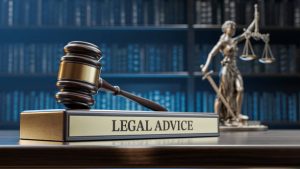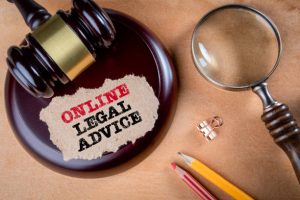Corporate debt collection is an essential process for recovering financial dues from companies that are unable to meet their obligations. This process involves organized efforts by creditors or their authorized representatives to collect debts on their behalf. The process of debt collection depends largely on the initial notification sent to the debtor. The process typically begins with direct communication with the debtor, whether via official letter, phone call, or email, to inform them of the amounts owed and remind them of the need to pay.
To ensure success in debt collection, companies must develop a comprehensive action plan that demonstrates their ability to effectively recover funds. This plan includes several steps, including assessing the debtor’s situation, building a specialized team, and employing various follow-up and motivation strategies. Adopting this practical plan not only demonstrates the company’s ability to collect, but also contributes to maintaining business relationships and improving financial performance.
How to Collect Debts from Customers?
Collecting corporate debts from customers is a process that requires well-thought-out strategies to ensure efficient recovery of financial dues. The first step in debt collection is to immediately contact the customer as soon as they are late in payment. This is best done by sending a formal reminder detailing the amount due and the final payment date.
The process requires a flexible approach to dealing with the customer. In some cases, flexible payment plans or discounts may be proposed if payment is made early. Continuous and transparent communication with the customer is key to avoiding debt accumulation. Email or phone calls can be used to remind the customer of outstanding debts.
Effective steps in debt collection:
Initial Analysis: The process begins by understanding the reasons behind the debtor’s late payment. There may be temporary financial challenges, which require negotiation rather than immediate escalation.
Negotiation and Setting Up a Repayment Plan: In certain cases, debt collectors can offer alternative solutions such as rescheduling payments or offering incentives for early payment. These solutions help improve the chances of collection without losing the customer.
Using Advanced Tracking Systems: Regularly tracking debts is essential, as modern technology helps track payments and issue automatic reminders to the customer.
Taking Legal Action: If collection amicably fails, legal action may be required as a last resort to ensure debt recovery.
Contact us now to receive personalized legal advice that meets your needs and ensures effective results!
What skills are required for debt collection?
To ensure efficient and effective debt collection, companies rely on implementing specific strategies in collaboration with specialized debt collection agencies. These skills include:
1. Proficiency in clear communication and documentation
Clear and concise communication plays a vital role in debt collection. Collection agencies rely on polite and professional language when dealing with debtors to ensure a respectful atmosphere and avoid escalation. Professionalism in these situations is essential. In addition, agencies prioritize written communications, with all correspondence with debtors documented to maintain an accurate record that can be used as evidence in the event of legal action.
2. Timely Follow-up and Reminders
Consistent follow-up and effective reminders are an essential part of debt collection strategies. Collection agencies respond promptly to debtor inquiries, reflecting professionalism and a commitment to settling outstanding debts. Scheduled reminders are also sent to ensure debtors remain aware of their financial obligations. This proactive approach increases the chances of timely payment.
3. Tailoring Curricula to Each Debtor
Each debtor has a different financial situation, so debt collection agencies analyze the debtor’s profile to determine their ability to repay and their preferences. Based on this analysis, customized repayment plans are developed that take into account the debtor’s financial situation, allowing them to pay comfortably while ensuring gradual debt recovery.
4. Choosing the Right Debt Collection Agency
When choosing a debt collection agency, businesses should consider several factors to ensure a successful partnership, such as:
Experience in debt collection across various sectors: It is preferable to choose an agency with experience in the same sector as your business to ensure they understand the complexities of debt collection in this field.
Customer References: Reviewing the experiences of other companies can provide insight into the agency’s performance and level of professionalism.
Legal Compliance: Ensure the agency complies with local regulations and holds the necessary licenses to ensure legal compliance.
5. Transparency in Pricing and Services
The pricing structure should be clear, whether it is based on commission or upfront fees. Additionally, it is important to carefully review service agreements to ensure clarity of expectations and avoid any future surprises.
Are you looking for a debt recovery action plan? Here are 7 steps:
Effectively collecting debts of all types requires a well-thought-out plan based on clear and structured strategies. Here are the key steps:
1. Assess the Current Situation
Before beginning debt collection, a thorough assessment of the debtor’s financial situation must be conducted. This assessment includes knowledge of the debtor’s payment history, financial capacity, and potential risk level. Understanding the debtor’s situation helps in choosing the optimal strategy and reduces the likelihood of late or failed payments.
2. Develop a Clear Collection Policy
Defining a comprehensive collection policy ensures that all steps of the process are clear and organized. This policy includes payment terms, methods of communication with the debtor, and the legal procedures that may be required in the event of default. Having a clear policy helps improve efficiency and compliance with industry best practices.
3. Build a Specialized Team
Having a specialized team trained in areas such as negotiation, communication, and collection laws increases the chances of success. Professionals in this field know how to handle complex and critical situations, contributing to achieving the best results.
4. Develop an Effective Follow-Up System
Establish a regular and effective follow-up system that helps monitor the progress of the collection process and ensure timely payment. Technical and automated systems can be used to streamline the process and improve collection speed, reducing the risk of delays.
5. Implement Diverse Collection Strategies
Based on the debtor’s situation, multiple strategies can be implemented, such as offering flexible payment plans or early settlement discounts. These strategies enhance repayment opportunities and encourage debtors to pay without resorting to legal action.
6. Establish Clear Payment Terms
From the outset, payment terms should be fully communicated between the parties involved. Clarity in the terms prevents misunderstandings and helps ensure adherence to payment deadlines, reducing disputes.
7. Measure Performance and Evaluate Results
It is important to continuously evaluate collection efforts by measuring performance indicators such as recovery time and success rate. Periodic analysis of results helps make necessary adjustments to the strategy and improve collection rates over time.
What legal debt collection solutions should you use in creating your business plan? To ensure effective debt recovery, a range of legal tools can be used, such as:
Legal notices: formal warnings to the debtor before taking legal action.
Amicable settlements: attempting to reach a compromise before resorting to the courts.
Legal proceedings: resorting to the courts to recover debts if amicable solutions fail.
These solutions complement the debt collection plan and help protect creditors’ rights. At B2B Debt Collection, we:
What do B2B Debt Collection experts recommend?
If you’re wondering how to collect debts between companies, you need to turn to those with more experience in this field to help you develop an effective strategy for collecting your bad debts. At B2B Debt Collection, we offer several effective plans tailored to each sector.
Here are some important tips you may need if you’re facing debt collection issues, including:
First:
First, you should avoid financial problems by pre-screening your clients. We always recommend conducting a thorough examination of their financial situation before entering into any business relationship. Businesses experiencing cash flow problems may delay payments or avoid paying altogether. Therefore, identifying potential customers who pose a risk helps reduce the number of delinquent accounts.
Second:
One of the most important tips we offer at B2B on how to collect debts is to establish clear and precise payment terms from the outset, such as payment deadlines and potential late payment penalties. This step helps reduce ambiguity and encourages customers to adhere to the deadlines.
Third:
If traditional methods fail, you may need to enlist the help of a debt collection agency that specializes in handling difficult default cases. This can help you offer flexible payment plans or installments to facilitate payment while ensuring a refund.





